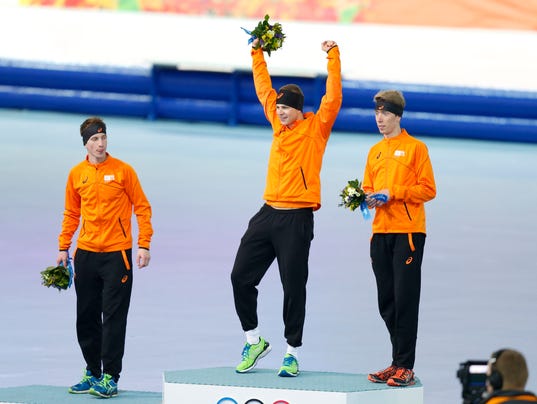 |
| Europe's powerful Ariane heavy lifter rocket |
Falling somewhere between a team-building exercise and a love-fest, the amiable and optimistic sentiments expressed by European space leaders reflected a marked change of tone from those in recent months.
All of Europe’s strengths — and unresolved challenges — were on the table, making for a refreshingly healthy airing of views. As for Galileo specifically, all parties seem to be on the same page for an end-of-year rollout of early services, based on a 10-satellite constellation (including the 4 in-orbit validation or IOV spacecraft already launched) to be in place by December.
The program was opened by no less a figure than European Commission President José Manuel Barroso, who said (in a recorded message), “Our European space programs are fully on track.”
Good news for those who have been watching from the sidelines as the various Galileo leaders, as recently as last fall, seemed on the verge of pointing fingers. And especially good news for those (i.e., businesspeople) whose confidence is supposed to be driving the economic payback that is Galileo’s very raison d’etre.
In his opening presentation in Brussels, European Commission Vice-President Antonio Tajani headed off at the pass any notion of an ESA-GSA gap, saying, deliberately, “The GSA and ESA will work together for early services.”
Speaking in French, Tajani was convincing in his demonstration of brotherly feeling towards the man on whom all depends — at least on the technical level. He thanked Dordain for the new launch schedule that will underpin the on-schedule delivery of early Galileo services.
“Galileo will move forward this year,” Tajani said. “There will be six new satellites, bringing the total to 10 in orbit. Mr. Dordain has told me, and he confirmed to me again today, there will be three launches in 2014. The first will come in June. Two satellites have passed the necessary tests. We need to keep this up, we must continue to raise our game.”
Under ESA’s current plan, the other two-satellite launches would occur in October and December on Russian Soyuz rockets, barring any last-minute technical problems. But ESA launch manifest is crowded this year, and a four-satellite.
Note EU-Digest: Last year Europe (ESA) launched the world's most accurate billion dollar state of the art space telescope, that should bring back home the most detailed 3D map of our galaxy.
The unprecedented scope of the stars to be surveyed is accompanied by the unprecedented precision with which it’s achieved. The detail will be a thousand times higher than can be done from the ground. The scientific community is holding its breath for a breakthrough.
Read more: Galileo Leaders, Vision Coalesce at EU Space Policy Conference | Inside GNSS



